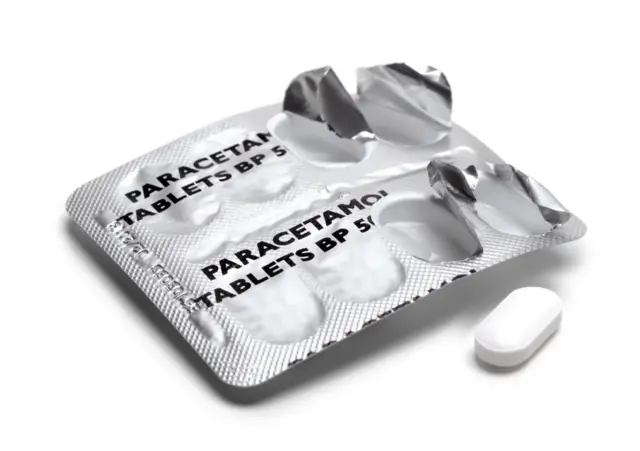Urgent Warning: US to Advise Pregnant Women Against Paracetamol Over Autism Link

President Trump is expected to announce a formal link between taking paracetamol during pregnancy and the increased risk of autism and Attention Deficit Hyperactivity Disorder (ADHD) later today. This announcement follows a federal review spearheaded by controversial health secretary Robert F Kennedy Jr. This is not the first instance where the popular over-the-counter painkiller, also known as acetaminophen and sold as Panadol in the UK and Tylenol in the US, has been implicated in neurodevelopmental disorders.
Paracetamol is widely used by expectant mothers to manage pain, headaches, and fever. In the UK, around half of pregnant women use it, with the figure rising to approximately 65 percent in the US. The NHS currently recommends paracetamol as the 'first choice' painkiller for pregnant women, but strictly for short periods and at the lowest effective dose. Only individuals with specific conditions like liver or kidney disease or those on epilepsy medication are advised to exercise extra caution.

Photo Credit: The Guardian
Dozens of studies have previously suggested a link between prenatal paracetamol exposure and higher rates of autism and ADHD. In August, Harvard scientists cautioned that pregnant women should only use paracetamol under medical supervision. Further research by US scientists from Mount Sinai and Harvard's School of Public Health, analyzing over 100,000 people, provided what they described as the 'strongest evidence so far' of this association. They urged mothers-to-be to use paracetamol sparingly, recommending 'the lowest effective dose for the shortest possible time.'
Despite these findings, the research team emphasized that the studies do not definitively prove the drug directly causes neurodevelopmental disorders, but rather highlight a consistent and concerning association warranting further investigation. Dr. Diddier Prada, assistant professor of population health science at Mount Sinai Hospital and co-author of the study, noted that 'higher-quality studies are more likely to show a link between prenatal acetaminophen exposure and increased risks of autism and ADHD.'
He added that given the widespread use of the medication, even a small increase in risk could have significant public health implications. However, he stressed the importance of not abruptly stopping medication without consulting doctors, as untreated pain or fever can also harm the baby, and encouraged discussing the safest approach with healthcare providers and considering non-drug options.
A review of 46 separate studies, encompassing over 100,000 participants, published in the journal Environmental Health, concluded with 'strong evidence of a likely relationship between prenatal acetaminophen use and increased risk of ADHD in children,' and also 'strong evidence of a relationship between prenatal acetaminophen use and increased risk of autism in children.' These studies included high-quality research providing very strong evidence of such associations.
Furthermore, a 2021 study involving health data from over 70,000 children across six European countries revealed that 56 percent of mothers whose children were on the autism spectrum or had ADHD had taken paracetamol during pregnancy. Earlier studies suggested paracetamol might enter the baby's body, releasing toxins linked to poorer cognitive performance and behavioral issues.
Conversely, experts have long advised caution regarding the suggested link. Professor Andrew Whitehouse, Angela Wright Bennett Professor of Autism Research at The Kids Research Institute Australia, highlighted the inconsistency of findings. He stated that while some studies report small associations, these do not prove direct causation, noting that autism is a complex condition influenced by numerous genetic and environmental factors. He also emphasized that any small associations must be weighed against the risks of untreated high fever during pregnancy for both the mother and the developing baby. Autism, present from birth, is a spectrum condition with varying support needs, not a disease.

Photo Credit: BBC News
The discussion surrounding paracetamol and neurodevelopmental disorders occurs amidst a broader context of rising diagnoses. NHS figures indicate that over 230,000 people in England are now prescribed ADHD medication, with prescription rates jumping by a fifth last year—the sharpest annual rise since 2015. This surge is primarily driven by women in their 20s and 30s, though prescriptions for children are also increasing. While some experts express concern about over-diagnosis by private clinics, others argue that many adults are only now receiving the help they long needed, especially since ADHD was formally recognized as a disorder persisting into adulthood in the UK in 2008.
In the US, an estimated 2.3 million children and seven million adults have Autism Spectrum Disorder (ASD). Diagnoses have risen sharply over the past two decades; CDC statistics show an increase from 1 in 150 children in 2000 to 1 in 31 in 2020. A 2024 study of 12.2 million Americans' health records further revealed a 175 percent increase in autism diagnoses over an 11-year period. This near-quadrupling reflects greater awareness and evolving diagnostic criteria, though researchers remain divided on whether biological and environmental factors also play a significant role.
You may also like...
Sports Betting in Africa: Quick Money or Long-Term Addiction?

"Is sports betting in Africa an opportunity for wealth or a trap for addiction? Explore its impact on youth, the role of...
October 2nd: Guinea’s Independence—A Nation With Defiant Beginning and Enduring Story

On October 2, 1958, Guinea made history as the first French colony in Sub-Saharan Africa to boldly declare independence....
The Jumia Story: Lessons From Africa’s First Tech Unicorn

Discover the story of Jumia, Africa’s first tech unicorn, and how platforms like Glovo and Bokku are reshaping e-commerc...
The Silent Cognitive Crisis: Brain Complacency in the Age of AI

“AI offers convenience, but at what cost? Explore how over-reliance on artificial intelligence fuels brain complacency, ...
Legacy Continues: Football Royalty's Son Nets Stunning Screamer for Barcelona Youth

Shane Kluivert, son of Dutch football legend Patrick Kluivert, scored a spectacular 'screamer' for Barcelona's Under-19s...
WNBA Star's Terrifying Health Ordeal: Mitchell Reveals Rhabdomyolysis Left Her Paralyzed

Indiana Fever All-Star guard Kelsey Mitchell revealed she suffered from Rhabdomyolysis during a WNBA semifinal game, cau...
Warner Bros' Box Office Bubble Bursts, But Industry Shrugs: What Does It Mean?

Paul Thomas Anderson's "One Battle After Another" marks a different kind of success for Warner Bros., earning critical a...
DCU's Nightmare: Are Film Franchises Repeating MCU's Fatal Flaws?

The DCU's increasing interconnectivity, particularly in <i>Peacemaker</i> Season 2, is raising concerns about potential ...




